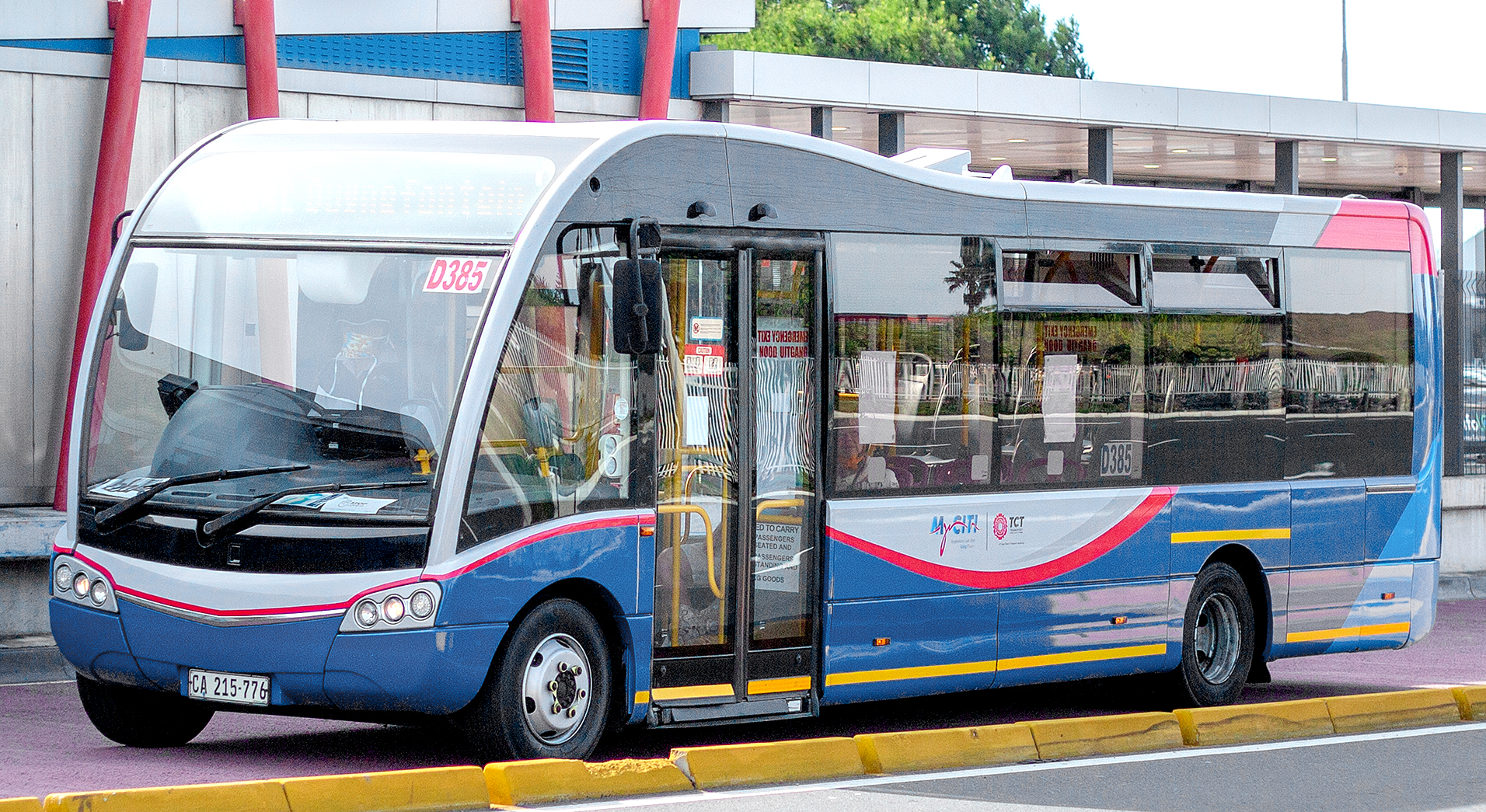Cape Town wants commuters to stop fumbling with cards, coins and top-ups. The City is preparing to roll out a new account-based ticketing (ABT) system for its MyCiTi buses.
“We’ve been working for some time on an account-based ticketing system we would like to implement,” said mayoral committee member for urban mobility Roberto Quintas. He described the technology as key to “making it much easier for tourists to use the service” and ultimately easier for local commuters than using cars.
The new system is part of the City’s push to modernise its expanding transport network, which includes a massive phase two expansion and a new fleet of fully electric buses.
What ABT means for the rider
The ABT system wants to change how commuters pay. Cape Town’s latest MyCiTi Business Plan describes it as “an open automated fare collection system which allows for any fare media (bring your own device) to be used”.
That means your smartphone, smartwatch or even a contactless bank card could soon replace the blue-and-red MyCiTi card.
Cape Town wants this new fare system to be prioritised for implementation in 2026, when MyCiti’s phase one contracts come up for renewal. The goal, according to the business plan, is universal accessibility with minimum barriers to entry.
Read more: City of Cape Town’s new transport plan puts big legacy projects on backburner
The MyCiTi business plan also calls for new ways to boost revenue, such as advertising partnerships, long-term leases at stations and private-sector collaborations to make operations more financially sustainable.
But there’s a snag. The National Department of Transport prescribes a more rigid, card-centric model using a standard known as CIPURSE – a secure global framework for public transport fare collection. The City argues that this would restrict the use of apps and web-based payments and inflate costs by an estimated 66% compared with its open, media-agnostic system.
Quintas acknowledged that this is a lengthy process, noting that an “elegant” solution has not yet been found.
A network in motion
The ABT roll-out coincides with MyCiti’s biggest physical expansion yet. Phase 2A will link southeast communities Khayelitsha and Mitchells Plain with southern suburb hubs Wynberg and Claremont.
Once complete, the expansion will connect 36 neighbourhoods and 1.2 million residents, Quintas said. With R6-billion earmarked over the next three years, it’s the biggest financial investment in public transport by any metro to date.
Read more: Extortionists ‘hell-bent’ on derailing MyCiTi bus project, says City of Cape Town
Construction is already visible across the southeast parts of Cape Town, including the city’s first “Sky Circle” in Hanover Park, which is a freestanding, elevated traffic circle. Phase 2A services are set for an initial milestone launch in July 2027, though the full completion of infrastructure could edge into 2028, according to Quintas.
What this means for you
No more card hassles: Soon Capetonians might be able to tap in on MyCiTi buses using phones or smartwatches.
Faster boarding: Swipe-free payments mean quicker queues and less waiting.
Cheaper, cleaner travel: Electric buses will cut fuel costs in the long run and reduce pollution across the city.
More connections: The Phase 2A expansion is going to open up new jobs and routes.
Electric roads ahead
As the network grows, the engines are going quiet. The next phase of MyCiTi will be fully electric. “The City of Cape Town has committed to various carbon emission goals,” Quintas said, adding that it is a “terrific amount of pressure”.
To this end, Cape Town has already ordered 70 Volvo electric buses, with another 200 in the pipeline. “The intention is absolutely 100% EVs,” confirmed the City’s acting director for public transport, Harold Peters.
Going electric in South Africa isn’t as smooth as plugging in and driving off. Larger 18m buses weren’t available in EV form, forcing the City to opt for 12m buses and ordering more, Quintas said, adding that import costs for electric vehicles remain punishingly high.
Read more: Buses, taxis, batteries & gas — Cape Town mayor, Gautrain CEO share plans to decarbonise transport
In the meantime, the City is looking to assemble the imported Volvo components locally, said MyCiTi fleet manager Craig Swain. “It is important to create jobs and grow the economy,” he said. “What we are doing is the correct thing in terms of creating jobs.”
Peters added that by awarding the tender to Volvo, the City is sending a message to manufacturers, hoping that “other cities will follow suit”.
/file/dailymaverick/wp-content/uploads/2025/10/ED_221538.jpg)
The cost of progress
The City’s financial planners know that all this ambition comes with a price tag. The MyCiTi Business Plan Update warns that a “business as usual” approach would leave the system with a R6.3-billion deficit over the 2023-2037 period.
The revised financial plan cuts the long-term deficit to about R140-million through a round of cost-saving measures, including a 64% reduction in vehicles and a 54% cut in routes for the Phase 2A roll-out.
After rail, Quintas said, buses “are the cheapest form of long-distance transport”. But cost efficiency demands smarter systems that can adapt and integrate, and attract more riders.
Read more: Golden Arrow swaps diesel for volts as SA’s biggest EV depot goes live
The City’s internal report notes that MyCiTi’s current automated fare collection system is nearing the end of its useful life. A failure to modernise would have “serious implications for the collection of revenue and accessibility of the service”.
For most Capetonians, the jargon, tenders and transit acronyms only matter if the buses show up and the trip feels easy. “People want to understand the tangible benefits,” said Peters, since the City uses a portion of its property rates revenue to subsidise the bus service. “If you appeal to people’s hearts — good luck.”
If it works, Capetonians’ commutes might become more seamless. Tap your phone, hop on a bus, switch to a taxi without juggling cards and do it all on a quiet, zero-emission ride. DM





 A MyCiTi bus during lockdown level 4 in Cape Town on 12 May 2020. (Photo: Gallo Images / Misha Jordaan)
A MyCiTi bus during lockdown level 4 in Cape Town on 12 May 2020. (Photo: Gallo Images / Misha Jordaan)